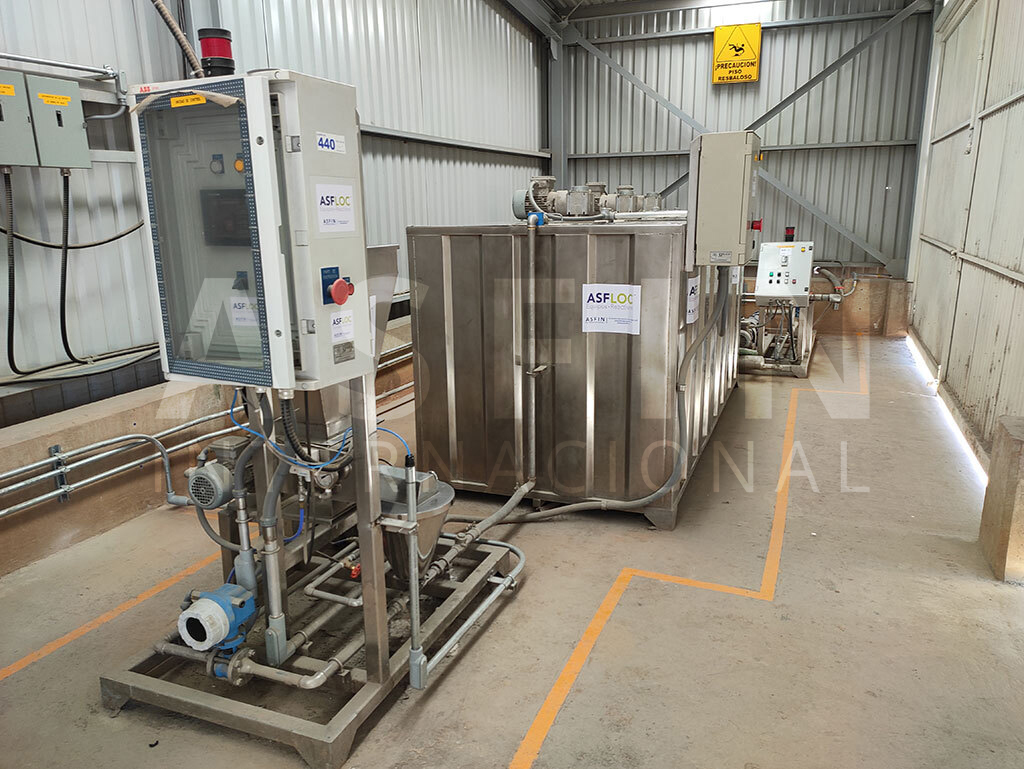Problem
In mineral beneficiation plants, the pulp obtained from the flotation process is sent to thickener tanks for solid-liquid separation. It is important that these operate optimally.
The customer required to work with very low clarification values in their tailings thickener to recover process water with better quality.
When turbidity measurements were taken in the overflow of the thickener, it was observed that the values were high. The deficiencies we identified were:
- The flocculant used
- Poor preparation of the polymer
- Lack of control in the dosage of the reagent.
Solutions and results
- We proceeded to evaluate our medium, high and super high molecular weight anionic ASFLOC™ flocculants through laboratory tests. We found that our ASFLOC™ 034 MPM was the best performing reagent with turbidities of no more than 5 NTU.
- We supplied the customer with an ASFLOC™ model EPFCL25/50/304/440 Flocculant Preparation Equipment to guarantee the precise concentration and correct preparation of the polymer.
- We provided a 50 LPM ASFLOC™ model UDOS50/60 Dosing Equipment as well. The improvements were reviewed and now, 80% of the flocculant flow is added in the feed box and the remaining 20% in the center of the thickener.
Since then, our customer operates its tailings thickener with turbidities around 2 NTU and operates with a much lower consumption than before.
Benefits
- Increased water recovery
- Correct preparation and dosing of flocculant, which also translates into lower polymer consumption
- Savings in operating costs

